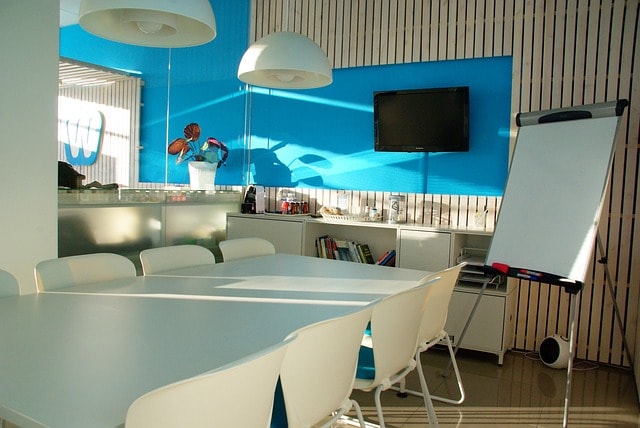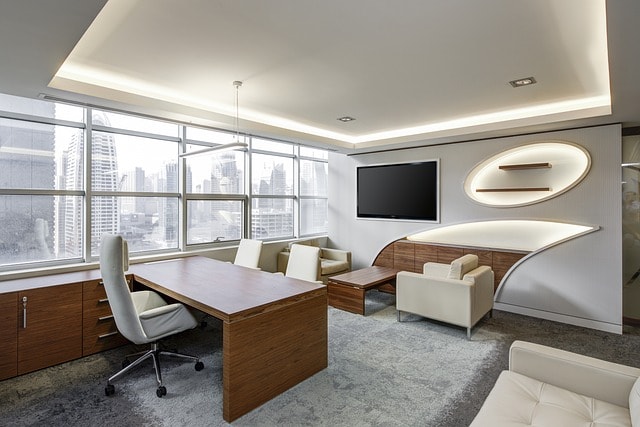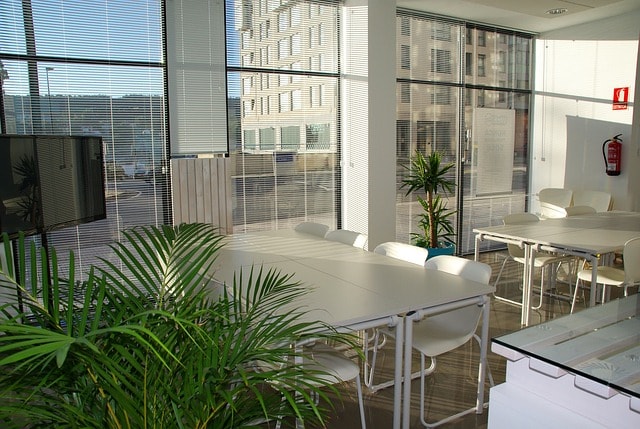How to Rent Business Property: 30 Things To Know…

Introduction
Renting business property is crucial for many entrepreneurs and established companies looking to expand or relocate. Whether you’re a startup seeking your first office or a growing business needing larger premises, renting commercial space can be complex and intimidating. This comprehensive guide will walk you through the essential steps, considerations, and potential pitfalls of renting business property, ensuring you make informed decisions that align with your business goals and budget.
1. Assessing Your Needs

Before you search for business property, it’s crucial to assess your needs thoroughly. Consider the following:
- How much space do you require?
- What type of layout will best suit your operations?
- Do you need specialized facilities (e.g., loading docks, high-speed internet)?
- How many employees will be using the space?
- Do you anticipate growth shortly?
Take time to map out your current and projected needs to ensure the space you rent will accommodate your business now and in the future.
2. Budgeting for Your Business Space

Establishing a realistic budget is critical when renting business property. Consider:
- Monthly rent
- Utilities
- Property taxes (if not included in rent)
- Insurance
- Maintenance costs
- Security deposit
- Potential renovation or build-out expenses
Remember to factor in unexpected expenses and ensure you have a financial buffer. Keeping your total occupancy costs (including rent, utilities, and maintenance) below 10% of your gross revenue is generally advisable.
3. Researching the Commercial Real Estate Market

Understanding the local commercial real estate market is essential. Research:
- Average rental rates for your desired area and property type
- Vacancy rates
- Market trends (is it a tenant’s or landlord’s market?)
- Economic factors affecting the local business environment
This information will help you negotiate better terms and make more informed decisions.
4. Types of Commercial Properties

Different businesses require different types of commercial properties. Common types include:
- Office spaces
- Retail storefronts
- Industrial warehouses
- Mixed-use properties
Each type has its characteristics, zoning requirements, and typical lease structures. Ensure you look at properties that align with your business needs and local regulations.
5. Location, Location, Location

The importance of location cannot be overstated. Consider:
- Proximity to your target market or client base
- Accessibility for employees and customers
- Nearby amenities (restaurants, parking, public transportation)
- Safety of the area
- Compatibility with your brand image
Remember, a great location can contribute significantly to your business’s success.
6. Understanding Lease Types

Commercial leases come in several types, including:
- Gross Lease: Tenant pays a flat rate, landlord covers most expenses
- Net Lease: Tenant pays base rent plus some or all property expenses
- Triple Net Lease (NNN): Tenant pays base rent plus all property expenses
- Percentage Lease: Common in retail, where rent is based partly on the tenant’s sales volume
Understanding these types will help you compare properties more effectively and negotiate better terms.
7. Working with a Commercial Real Estate Agent
An experienced commercial real estate agent can be invaluable. They can:
- Help you find suitable properties
- Provide market insights
- Assist with negotiations
- Guide you through the leasing process
While you’ll typically pay a fee for their services, their expertise can often save you money and headaches in the long run.
8. Viewing and Evaluating Properties
When viewing potential properties:
- Take detailed notes and photos
- Measure the space to ensure it meets your needs
- Check the condition of the building and any included equipment
- Assess the suitability of the layout for your operations
- Consider the impression it will make on clients or customers
Don’t hesitate to visit multiple times and bring key team members for their input.
9. Negotiating Lease Terms
Nearly everything in a commercial lease is negotiable. Key points to negotiate include:
- Rental rate
- Lease length
- Renewal options
- Rent increases (escalations)
- Tenant improvement allowances
- Sublease rights
- Early termination clauses
Be prepared to compromise, but also know your deal-breakers.
10. Understanding the Lease Agreement
Commercial lease agreements are complex legal documents. Key elements to understand include:
- Term and renewal options
- Rent amount and payment schedule
- Security deposit requirements
- Permitted use of the property
- Maintenance and repair responsibilities
- Insurance requirements
- Default and remedy provisions
Consider having a lawyer review the lease before signing.
Related Terms: rent space, commercial property, new office space, small office space, business owner, new business owner, renting space, commercial spaces, business partner,
11. Dealing with Landlords
Building a good relationship with your landlord can make your tenancy smoother. When dealing with landlords:
- Be professional and courteous
- Communicate clearly and promptly
- Keep thorough records of all communications
- Understand their perspective and motivations
- Be prepared to negotiate firmly but fairly
Remember, a good landlord-tenant relationship can be beneficial for both parties.
12. Considering Future Growth
When renting business property, always keep an eye on the future. Consider:
- Options for expanding within the same building
- Flexibility to reconfigure the space
- Sublease or assignment rights
- Early termination options
Ensure your lease allows for growth or change without excessive penalties.
13. Zoning and Permits
Before signing a lease, verify:
- The property is zoned for your intended use
- You can obtain all necessary permits and licenses
- There are no pending zoning changes that could affect your business
Zoning issues can be complex, so consult with local authorities or a real estate attorney if you have any doubts.
14. Accessibility and Parking
Consider the accessibility of the property for employees, customers, and deliveries:
- Is there adequate parking?
- Is the building ADA-compliant?
- Are there loading zones if you receive frequent deliveries?
- Is public transportation available nearby?
These factors can significantly impact your daily operations and customer satisfaction.
15. Utilities and Maintenance
Understand your responsibilities regarding utilities and maintenance:
- Which utilities are included in the rent?
- Who is responsible for HVAC maintenance?
- What are the procedures for requesting repairs?
- Are there any shared maintenance costs with other tenants?
Clarify these points in your lease to avoid surprises and disputes later.
16. Security Considerations
Evaluate the security features of the property:
- Are there security guards or a reception area?
- Is there a secure entry system?
- Are security cameras installed?
- What are the after-hours access procedures?
If additional security measures are needed, negotiate with the landlord to install them before you move in.
17. Insurance Requirements
Most commercial leases require tenants to carry certain types of insurance:
- General liability insurance
- Property insurance
- Business interruption insurance
- Workers’ compensation insurance
Understand your lease’s insurance requirements and factor these costs into your budget.
18. Tax Implications
Renting a business property can have various tax implications:
- Rent payments are typically tax-deductible
- Improvements may need to be depreciated over time
- Some utility and maintenance costs may be deductible
Consult with a tax professional to understand how renting will affect your business’s tax situation.
19. Build-Out and Renovations
If the space needs modifications:
- Negotiate a tenant improvement allowance
- Get explicit approvals for any changes you plan to make
- Understand which improvements must be removed at the end of the lease
- Factor in the time and cost of renovations before you can move in
Ensure all agreements regarding enhancements are documented in the lease.
20. Technology Infrastructure
Modern businesses often require robust technology infrastructure:
- Verify the availability of high-speed internet
- Check cell phone reception throughout the space
- Assess the existing wiring for phones and computers
- Consider any specific tech needs your business may have
If upgrades are needed, negotiate with the landlord to complete them before you move in.
21. Environmental Considerations
Be aware of potential environmental issues:
- Check for any history of hazardous materials on the property
- Understand your liability for pre-existing environmental issues
- Consider energy efficiency and sustainability features
Environmental problems can be costly, so due diligence is crucial.
22. Legal Review of the Lease
Before signing, have a lawyer experienced in commercial real estate review your lease. They can:
- Identify unfavorable clauses
- Suggest additional protections
- Explain complex legal terms
- Ensure the lease aligns with your negotiated terms
The cost of legal review is typically far less than the potential cost of unfavorable lease terms.
23. Preparing for Move-In
Once you’ve signed the lease, prepare for your move:
- Schedule any necessary renovations
- Arrange for utilities to be connected
- Plan your office layout
- Coordinate with movers
- Update your business address on all documents and online platforms
A well-planned move can minimize disruption to your business operations.
24. Managing Ongoing Lease Obligations
Throughout your tenancy, stay on top of your lease obligations:
- Pay rent and other fees on time
- Maintain the property as required
- Comply with all lease terms
- Keep thorough records of all lease-related matters
- Communicate promptly with your landlord about any issues
Good lease management can help avoid disputes and maintain a positive landlord-tenant relationship.
25. Subleasing Considerations
If your lease allows for subleasing:
- Understand the process for obtaining landlord approval
- Know your ongoing obligations under the original lease
- Consider the financial implications of subleasing
- Ensure your sublease agreement protects your interests
Subleasing can provide flexibility but also comes with risks and responsibilities.
26. Renewing or Terminating Your Lease
As your lease end date approaches, consider your options:
- Review your renewal rights and deadlines
- Assess whether the space still meets your needs
- Understand the process and costs of terminating the lease
- Start planning well in advance (at least 6-12 months before the lease ends)
Early planning can give you more leverage and options whether you plan to stay or move.
27. Handling Disputes with Landlords
If disputes arise with your landlord:
- Review your lease agreement carefully
- Document all communications and issues
- Try to resolve matters amicably through discussion
- Consider mediation for complex disputes
- Consult with a lawyer if needed
Most disputes can be resolved through open communication and negotiation.
28. Eco-Friendly Office Spaces
Consider the environmental impact of your business space:
- Look for LEED-certified buildings
- Prioritize energy-efficient features
- Consider spaces with natural lighting and good ventilation
- Explore options for recycling and waste reduction
Eco-friendly spaces can reduce costs and appeal to environmentally-conscious employees and customers.
29. Shared and Flexible Workspaces
For startups or businesses needing flexibility, consider:
- Coworking spaces
- Executive suites
- Short-term leases
- Virtual office services
These options can provide greater flexibility and lower upfront costs than traditional leases.
30. Post-Pandemic Considerations
In the wake of the COVID-19 pandemic, consider:
- Flexible work arrangements and their impact on space needs
- Health and safety features (e.g., improved ventilation, touchless entry)
- Lease clauses addressing future pandemics or forced closures
- Options for reconfiguring space to accommodate social distancing
The pandemic has changed how many businesses use office space, so factor these considerations into your decision-making.
Frequently Asked Questions
- Q: How much space do I need for my business? A: A general rule of thumb is 150-175 square feet per employee for office space. However, this can vary based on your specific needs and industry.
- Q: What’s the difference between usable and rentable square footage? A: Usable square footage is the actual space you occupy. Rentable square footage includes your share of common areas (lobbies, hallways, etc.) and is typically what you’re charged for.
- Q: How long should my lease term be? A: This depends on your business needs and growth projections. Startups often prefer shorter terms (1-3 years) for flexibility, while established businesses might opt for longer terms (5-10 years) to lock in rates.
- Q: What is a tenant improvement allowance? A: The landlord provides money to help customize the space for your needs. It’s typically calculated per square foot and can be negotiated as part of your lease terms.
- Q: Can I negotiate the rent? A: Yes, rent is often negotiable, especially in markets with high vacancy rates. Other negotiable items can include free rent periods, improvement allowances, and renewal options.
Key Takeaways
- Thoroughly assess your space needs and budget before beginning your search.
- Understand different lease types and their implications for your business.
- Location is crucial – consider accessibility, visibility, and proximity to your target market.
- Nearly everything in a commercial lease is negotiable – don’t be afraid to ask for what you need.
- Always have a lawyer review your lease before signing.
- Consider future growth and flexibility when choosing a space and negotiating lease terms.
- Stay on top of your lease obligations throughout your tenancy to maintain a good relationship with your landlord.
- Start planning for lease renewal or termination before your lease end date.
If This, Then That: Decision-Making Scenarios
- If you’re a startup with uncertain growth projections, prioritize shorter lease terms and spaces with expansion options.
- If you’re in a customer-facing business, prioritize location and accessibility over lower rent in less prime areas.
- If you’re offered a longer lease term in exchange for lower rent,













